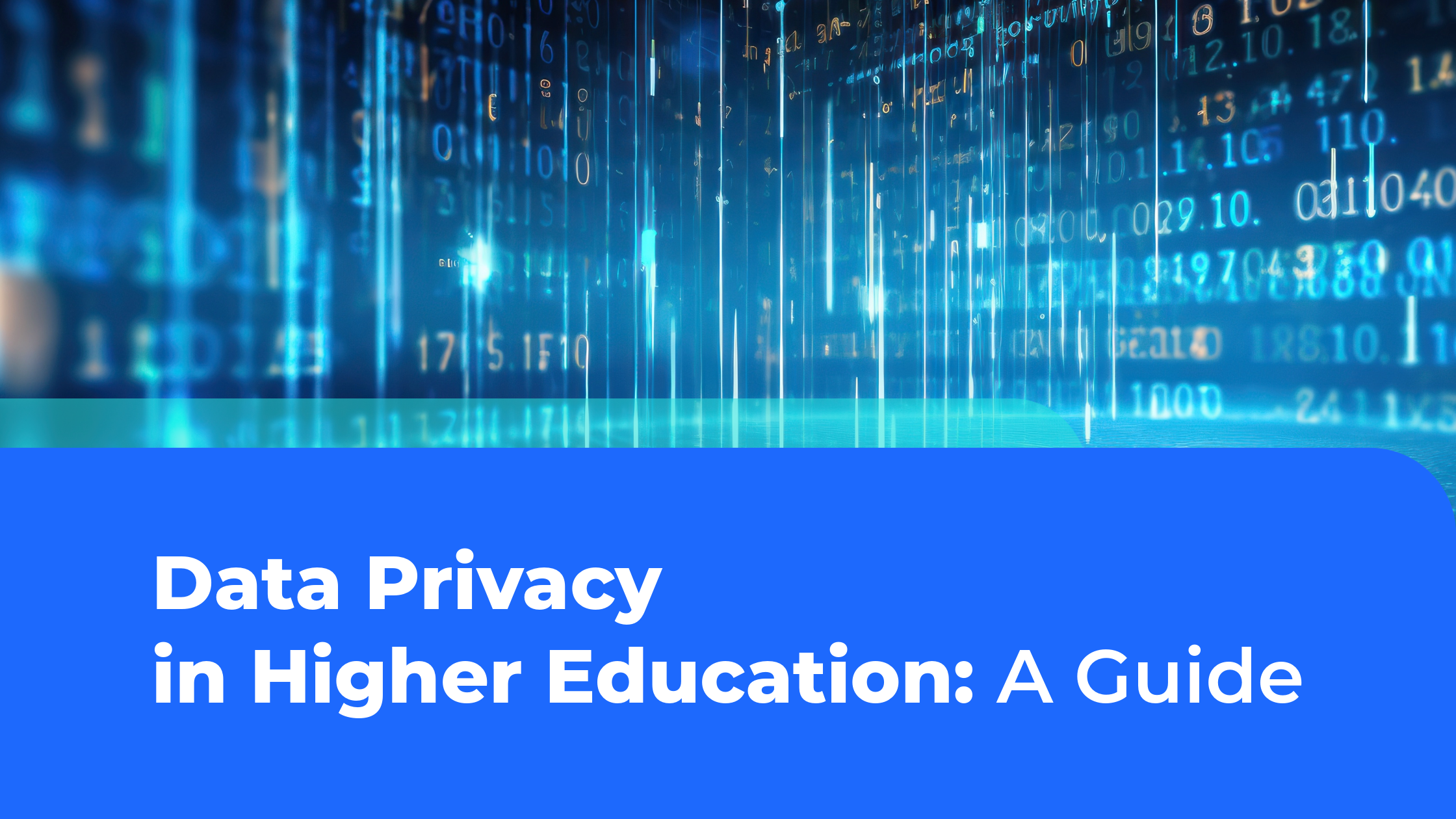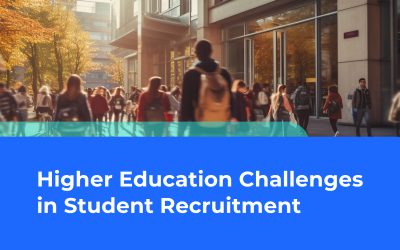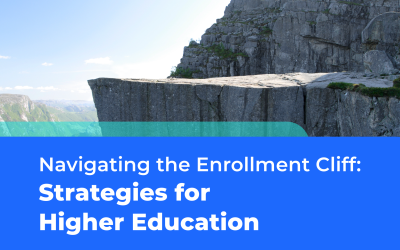In recent years, there has been an increase in privacy legislation surrounding student data. With more restrictions on how student data is used, colleges must stay informed about the current legislation and regulations that impact their schools.
Not only do colleges and universities have to protect the data of their currently enrolled students, but they must also pay attention to regulations surrounding the student data they use for recruitment.
This guide will provide colleges with pertinent information on the importance of privacy compliance, the legislation that affects them, and best practices for complying with privacy legislation.
Privacy Compliance for Colleges and Universities
Data privacy is a common topic in today’s higher education landscape. Many individuals have strong concerns about how their data is used, so colleges and universities must understand the legal and ethical implications of failing to adhere to privacy regulations.
So, what is data privacy? Deep Sync defines data privacy as when individuals have control over how their personal information is collected, managed, and shared by companies and organizations. Privacy legislation and regulations give individuals a say in how their information is used and holds organizations accountable for privacy risks.
Colleges and universities use data for their daily operations and marketing efforts—but they still must use it responsibly and comply with privacy laws and regulations to avoid legal penalties.
Current Data Protection Laws and Privacy Legislation
The first step in privacy compliance for colleges is knowing what laws they need to follow. There are many existing privacy legislations and regulations that colleges must comply with.
Some legislation is federal, which colleges in all states must follow. Then, there are state legislations that apply to institutions within that state. However, if a student is out of state, the institution may need to comply with the laws of the student’s home state, if the state has different privacy regulations.
Below are some common privacy legislations from state, federal, and international levels that impact colleges.
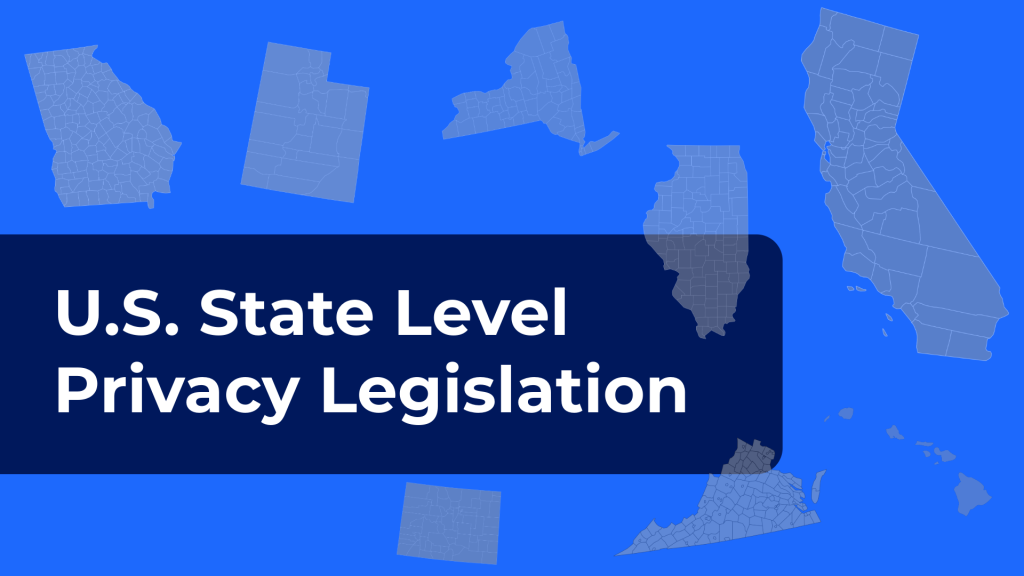
California’s Student Online Personal Information Protection Act (SOPIPA)
In 2014, California enacted the Student Online Personal Information Protection Act, which is known as one of the most comprehensive student privacy legislations in the United States. This legislation protects student data by prohibiting education technology service providers from selling student data and preventing the information from being used to advertise to students and their families. Service providers collecting student data must also ensure it’s secure and delete it upon request.
Other states have since adopted their version of California’s SOPIPA:
California’s Consumer Privacy Act (CCPA)
Another California privacy legislation is the Consumer Privacy Act. This legislation gives consumers rights over the personal information businesses collect about them. While this legislation is mainly focused on consumers, this law does impact for-profit schools and institutions.
Illinois’s Student Online Personal Protection Act (SOPPA)
The Illinois Student Online Personal Protection Act (SOPPA) was signed into law in 2019. It applies to K-12 schools and allows parents more control over their child’s information and how it’s collected and used by Illinois school districts and education technology providers. While this law focuses primarily on K-12, it impacts higher education for dual enrollment students.
Colorado Privacy Act (CPA)
The Colorado Privacy Act (CPA) went into effect in 2023. This legislation protects Colorado residents’ data privacy by regulating how businesses and organizations can handle and use their personal information. This legislation applies to higher education institutions, which must comply with individuals’ requests to access, correct, or delete their personal data.
New York’s Stop Hacks and Improve Electronic Data Security Act (SHIELD)
In New York, in times of a data breach, the business or organization must inform individuals impacted by the breach and contact the proper New York government authorities. The SHIELD legislation was created to ensure organizations implement the correct security and safeguards to help prevent data breaches and protect individuals’ data.
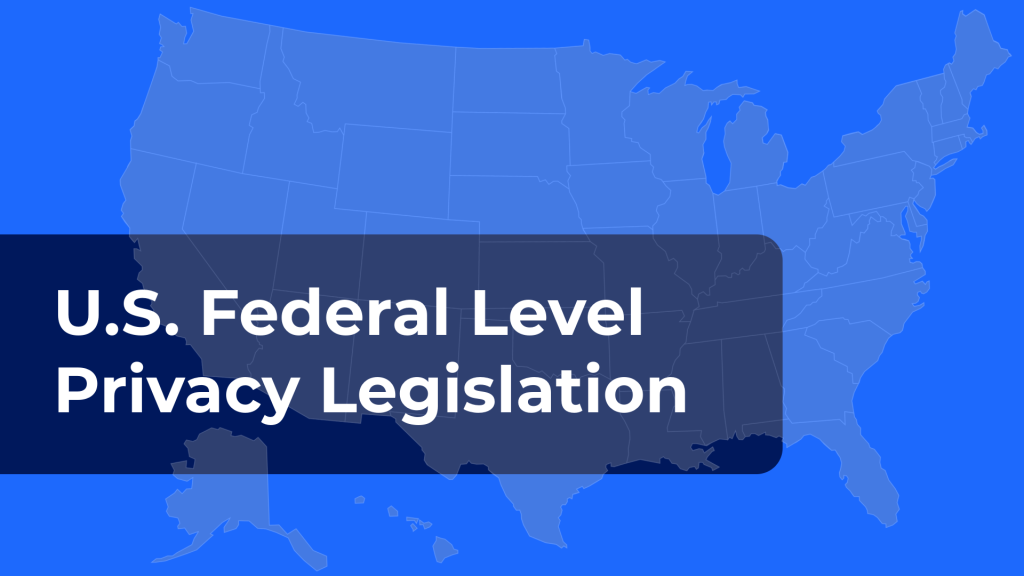
Federal Level: Family Educational Rights and Privacy Act (FERPA)
The Family Educational Rights and Privacy Act, commonly known as FERPA, is a federal law protecting students’ educational data. This law applies to K-12 schools as well as colleges and universities.
According to FERPA, colleges must allow students to access their education records, amend their records, and control the disclosure of their information. Colleges must also maintain proper security practices to safeguard their students’ data.
Federal Level: Gramm-Leach-Bliley Act (GLBA)
The Gramm-Leach-Bliley Act (GLBA) is a federal law commonly applied to financial institutions. Still, it also applies to colleges and universities because they handle student financial aid. This law requires colleges to safeguard student financial information and maintain cybersecurity processes and procedures to protect students’ financial data.
Possible Future Federal Legislation: American Data Privacy and Protection Act
While the American Data Privacy and Protection Act is still just a bill, it’s important to stay up-to-date on what privacy legislation may be on the horizon. This act would be at the federal level and would impact colleges by enforcing greater restrictions on how colleges collect, store, and share data.
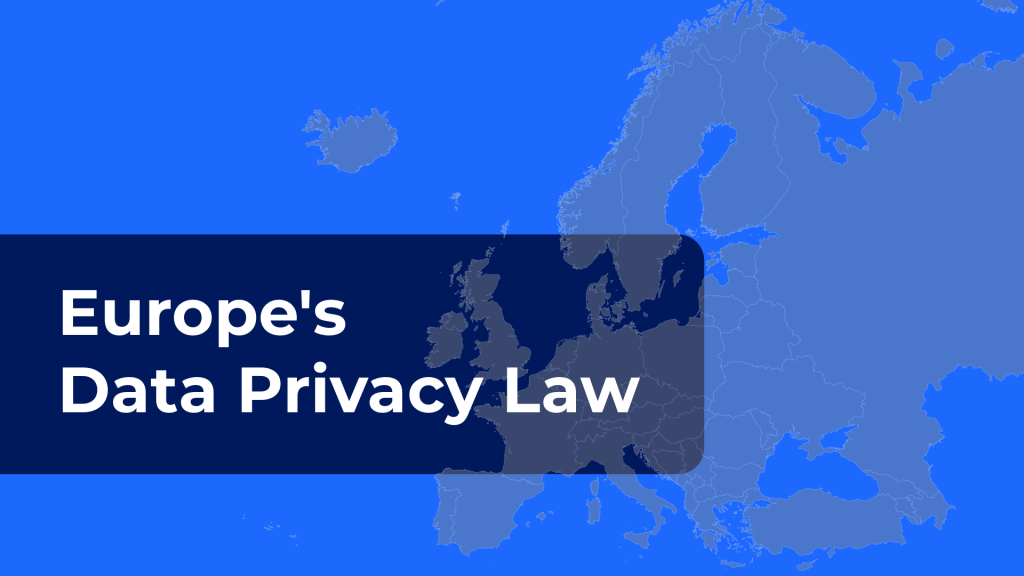
International Level: General Data Protection Regulation (GDPR)
Commonly known as GDPR, this privacy regulation from the European Union protects personal data and allows individuals to have a say in how organizations collect and use their data. Colleges and universities in the United States must comply with this privacy regulation if students or faculty are from the EU.
Best Data Security and Privacy Practices for Higher Education Institutions
Knowing the data privacy laws that apply to your institution is an essential first step in protecting students’ data. Implementing processes and procedures at your college to ensure your staff follow them is next. Below are some best practices for data security and privacy compliance for colleges and universities:
Maintain a Comprehensive Data Privacy Policy
Your college may already have an established data privacy policy, but it’s essential to update it regularly to comply with new privacy legislation and student concerns. When updates occur in your data privacy policy, make sure to inform staff, faculty, and students so they are made aware of the changes.
Regularly Train Staff, Faculty, and Students on Privacy Compliance
Training your staff and faculty on best data security practices can help keep your institution secure. Providing mandatory yearly training and quarterly updates on your privacy policy can help maintain staff compliance.
Interactive learning and ongoing awareness messages can also help students learn how to protect their data and your college from cyber threats.
Ensure your Database is Secure
Every college and university may handle data security differently, but ensuring proper procedures and security is crucial. Typically, IT departments conduct regular security audits and implement firewalls and encryption to ensure the institution’s network security is strong. However, knowing your college’s proper data security procedures can help you stay aware and knowledgeable.
Create a Data Breach Response Plan
A data breach response plan is essential in case of a security breach. It is imperative that your institution update it regularly to ensure it is accurate and up-to-date with your technology and new data privacy laws.
Work with Data Partners that are Privacy-Compliant
Many changes are happening in higher education that impact the way organizations secure their existing data and purchase third-party data. As more students take digital tests, digital privacy laws come into play. Between changes in searching for students, the enrollment cliff, and new privacy regulations—colleges need accurate student data that is privacy-compliant to power their enrollment efforts.
To compensate for the decrease in names due to demographic changes and digital testing, diversify your data sources for recruitment. CBSS can help your college or university fill recruitment data gaps by providing 30-40% more students in areas where your college has the best matriculation. Our privacy-compliant data will enable your college to boost its recruitment efforts by connecting with students you may have missed from your other data partners.
Learn More about Changes in College Recruitment
Contact CBSS today and learn how your organization can improve its enrollment strategy while remaining privacy compliant. Or, learn more about the changing landscape:
- The search for students is changing with the increase in digital testing. This blog post teaches you how to re-strategize your recruitment efforts.
- Increased privacy restrictions are not the only factor impacting college recruitment efforts. Learn about the enrollment cliff and what your college can do to prepare.
- Want to learn more about how CBSS can help your college? Check out our Student Data Product Sheet.

